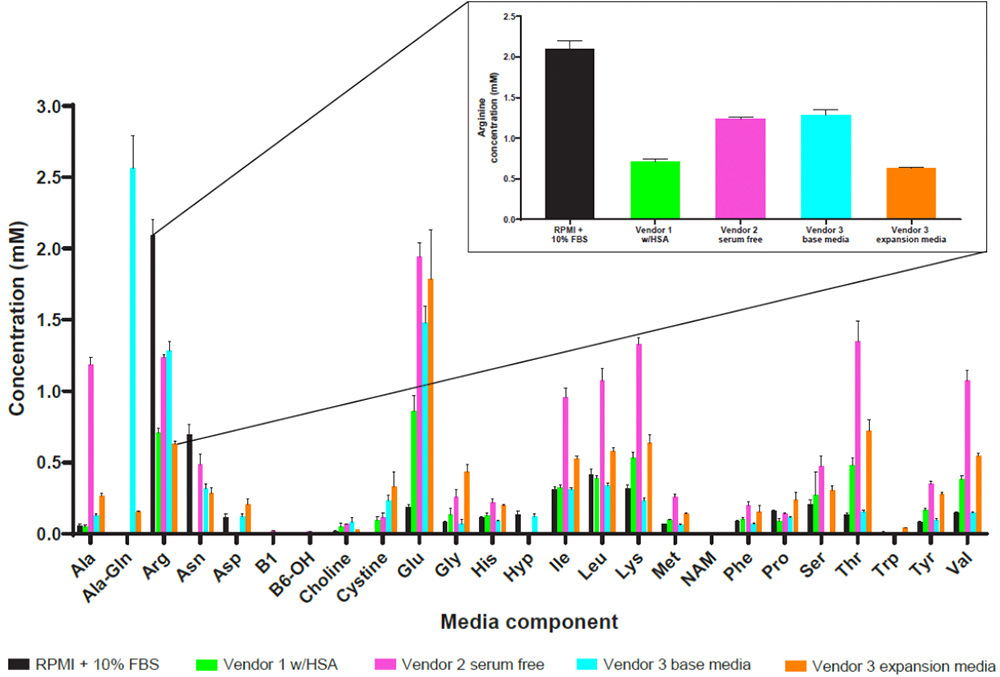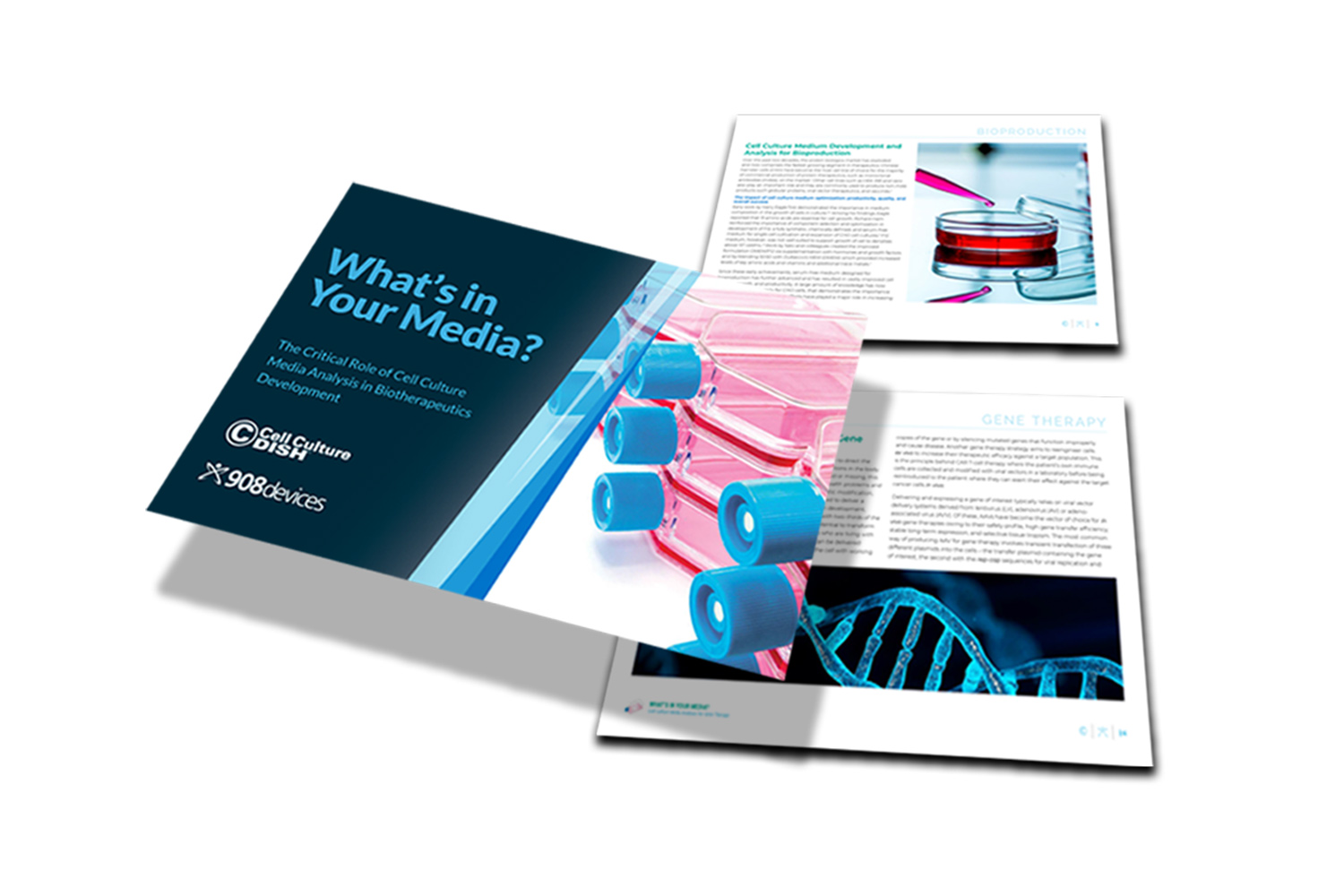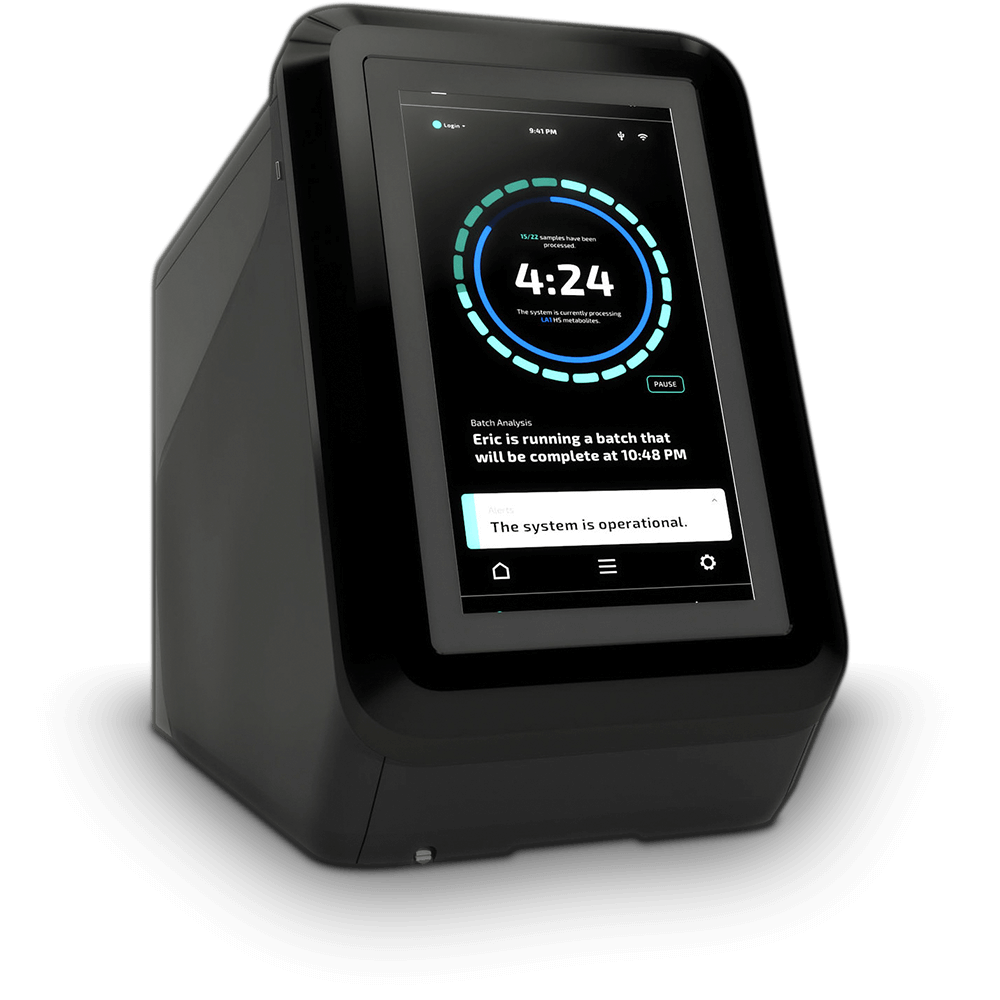Cell Culture Media Analysis >> Cell Media Analysis in Cell Therapy Development
Metabolite Analysis in Cell Therapy Development
There is renewed interest in nutrient and metabolite analysis to better understand the impact of various media additives in cell culture media.
Read the other articles in this series: Metabolomics Analysis in Cell Therapy Development, Analyzing Serum-Free Media for Cell Therapy Applications, Spent Media Analysis to Improve Cell Therapy Manufacturing
Unlike traditional biopharmaceutical manufacturing where well-established, clonal cell lines are used, cell therapies using primary and stem cells present some unique challenges, particularly in autologous settings. The degree of ex vivo cell expansion, differentiation and functional activation can vary significantly from patient to patient where the starting cells are limited and are often in poor health.
Because cell culture media formulations can influence cell characteristics (i.e., growth kinetics, health status and functional properties), there is renewed interest in metabolomics data analysis to better understand the impact of various media additives such as glucose, amino acids, vitamins and dipeptides, on critical quality attributes (CQAs) that influence therapeutic efficacy1,2.
The effects of metabolism on CAR T-cell efficacy have important implications for improving the quality of T-cells used in adoptive immunotherapy. The potency of therapeutic CAR T-cells has been found to be enhanced by extrinsic factors present in the medium during the cell therapy manufacturing process3.
A thorough understanding of metabolic mechanisms that regulate gene transfer, metabolic fitness, effector function, and persistence may facilitate stepwise improvements in the cell culture media used for ex vivo T cell production. The variety of media formulations intended for therapeutic applications merits comparative metabolic profiling to gain deeper insights into the contribution to exogenous nutrient levels that impact cell metabolism for each specific target.
Another area where metabolic profiling has utility is in the cell therapy process development stage to inform design of experiment (DOE) optimization of cell culture media formulations to improve overall manufacturing success. Capillary electrophoresis coupled to mass spectrometry (CE-MS) is a rapidly emerging analytical tool for metabolomics investigations to gain more insight into cell culture media, able to separate analytes with high efficiency and at high speed.
The at-line CE–MS device, REBEL, from 908 Devices, allows rapid quantification of amino acids and vitamins and has the potential to quantify other media components much faster than conventional HPLC-based analytics. Both untargeted methods capable of fingerprinting the complete metabolite profile and also targeted methods enabling the precise and accurate determination of a selected group of metabolites have been developed to analyze the media efficacy4.
As an example, arginine has been identified as a key amino acid for T-cell proliferation and thus its inclusion in media formulations for ex vivo expansion in CAR T workflows is required to obtain the necessary cell numbers for activation and genetic manipulation5,6. However, as shown in Figure 1, a wide range of arginine concentrations can be found across a panel of commercially available media formulations, which can have a significant impact on T-cell performance.

The unprecedented efficacy of CAR T-cell therapies to treat hematologic malignancies has also led scientists to investigate this approach for solid tumor cancers. However, the immunosuppressive tumor microenvironment has proven to be difficult for T-cells to overcome.
As such, strategies are being developed to improve T-cell metabolic fitness to overcome the hostile tumor microenvironment (TME) by pre-adapting the cells in vitro in culture media that is more reflective of the oxygen and nutrient status of the TME to prime them towards more effective and robust anti-tumor response once reinfused back into the patient6,7. Metabolic analysis of commercially available T-cell media formulations suggests they are not reflective of physiological conditions, and thus may require fine-tuning to ensure CAR T-cell readiness in vivo.
Similar conclusions have been made with human mesenchymal stem cells (hMSCs) for clinical applications. MSCs are multipotent adult stem cells that have promising therapeutic potential for tissue engineering applications because of their ability to both differentiate into distinctive mesenchymal phenotypes and to induce a regenerative microenvironment by secreting bioactive chemical compounds.
However, clinical success has been hampered by poor cell survival and engraftment upon transplantation into the site of injury. The transplanted MSCs experience a hostile, injured microenvironment of ischemia (lack of oxygen and nutrients), inflammation, and oxidative stress, which negatively imposes metabolic stress on the cells, affecting their ability to exert a positive therapeutic effect. Scientists are investigating metabolomics strategies to prime the MSCs in vitro prior to transplantation to improve their survival to increase the overall therapeutic potential of MSCs8.
References:
- Zang L, Frenkel R, Simeone J, Lanan M, Byers M, Lyubarskaya Y. Metabolomics profiling of cell culture media leading to the identification of riboflavin photosensitized degradation of tryptophan causing slow growth in cell culture. Anal Chem. 2011;83(13):5422-5430. doi:10.1021/ac2009492
- DePalma A. Better Cell Culture through Metabolomics. Genetic Engineering & Biotechnology News. July 1, 2015. https://www.genengnews.com/magazine/252/better-cell-culture-through-metabolomics/.
- Ghassemi S, Martinez-Becerra FJ, Master AM, et al. Enhancing Chimeric Antigen Receptor T Cell Anti-tumor Function through Advanced Media Design. Mol Ther Methods Clin Dev. 2020;18:595-606. doi:10.1016/j.omtm.2020.07.008
- Klupczynska A, Misiura M, Miltyk W, et al. Development of an LC-MS Targeted Metabolomics Methodology to Study Proline Metabolism in Mammalian Cell Cultures. Molecules. 2020;25(20):4639. doi:10.3390/molecules25204639
- Geiger R, Rieckmann JC, Wolf T, et al. L-Arginine Modulates T Cell Metabolism and Enhances Survival and Anti-tumor Activity. Cell. 2016;167(3):829-842.e13. doi:10.1016/j.cell.2016.09.031
- Wei J, Raynor J, Nguyen TL, Chi H. Nutrient and Metabolic Sensing in T Cell Responses. Front Immunol. 2017;8:247. Published 2017 Mar 9. doi:10.3389/fimmu.2017.00247
- Xu X, Gnanaprakasam JNR, Sherman J, Wang R. A Metabolism Toolbox for CAR T Therapy. Front Oncol. 2019;9:322. Published 2019 Apr 30. doi:10.3389/fonc.2019.00322
- Salazar-Noratto GE, Luo G, Denoeud C, et al. Understanding and leveraging cell metabolism to enhance mesenchymal stem cell transplantation survival in tissue engineering and regenerative medicine applications. Stem Cells. 2020;38(1):22-33. doi:10.1002/stem.3079

On-Demand Webinar
The Critical Role of Cell Culture Media Analysis in CGT Development
Does cell culture analysis matter for CGT development? This short webinar explores what is already known, reviews at-line methods for cell culture media analysis, and shares recent data from two case studies.
Keep Reading About Cell Therapy Process Development

Download the E-Book
What’s In Your Media?
Take a deep dive into the role that cell culture media analysis plays across bioproduction, cell therapies, and gene therapies.

Easy to understand answers
No more waiting for third party testing
Accurate, reliable performance whether running 1 or 100 samples
Solution for Cell Therapy Process Development
The REBEL
At-line cell culture media analysis. Results on 30+ components in under 10 minutes. When and where is your call. With the REBEL, now is always on the table.
email Subscribe to Our Communications Signup to receive new product updates, technical tips and more.